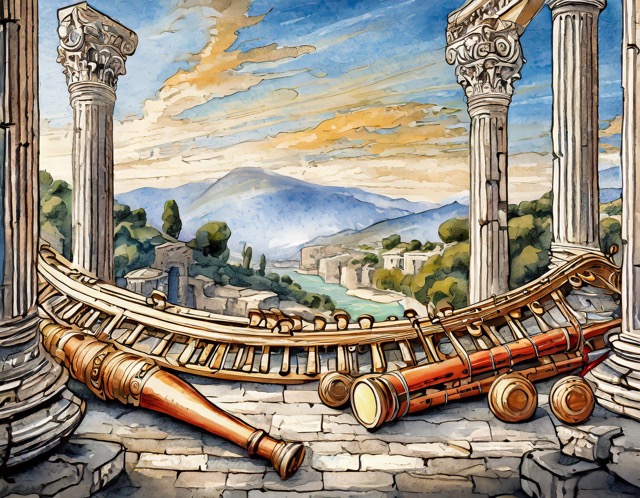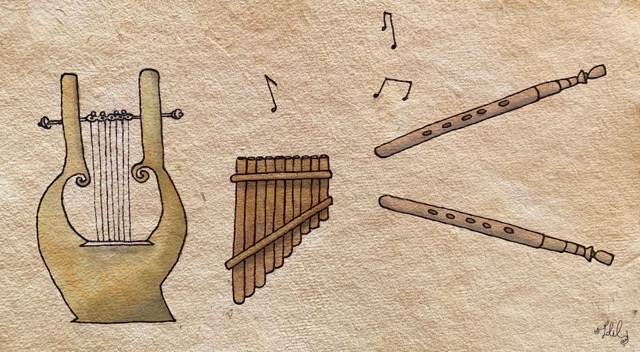- Home
- Music
Music

Music
In the ancient city of Ephesus, music culture permeated every aspect of social life, intertwining with religious ceremonies, theatrical performances, festivals, and daily rituals. Archaeological findings from Ephesus demonstrate that music and these instruments played a central role in the city’s social and religious life. The lyre and aulos were indispensable elements of these cultural events, forming an integral part of Ephesus’s rich musical heritage.

The lyre was a stringed musical instrument widely used in ancient Greek and Roman cultures, playing a significant role not only in musical expression but also as an accompaniment to poetic recitations. Typically constructed with a round resonator box (soundbox) made of shell or wood, two side arms, and strings stretched between them, the lyre was played by striking the strings with fingers or a plectrum to produce melodic and harmonic music. It found applications ranging from religious rituals to entertainment and even education.
The aulos, on the other hand, was a wind instrument often consisting of two pipes with double reeds. Each pipe could produce different notes, allowing the player to create rich and multi-layered music in a single performance. The aulos provided a rhythmic and dynamic musical backdrop and was used in various events such as religious ceremonies, military parades, and theatrical performances.
